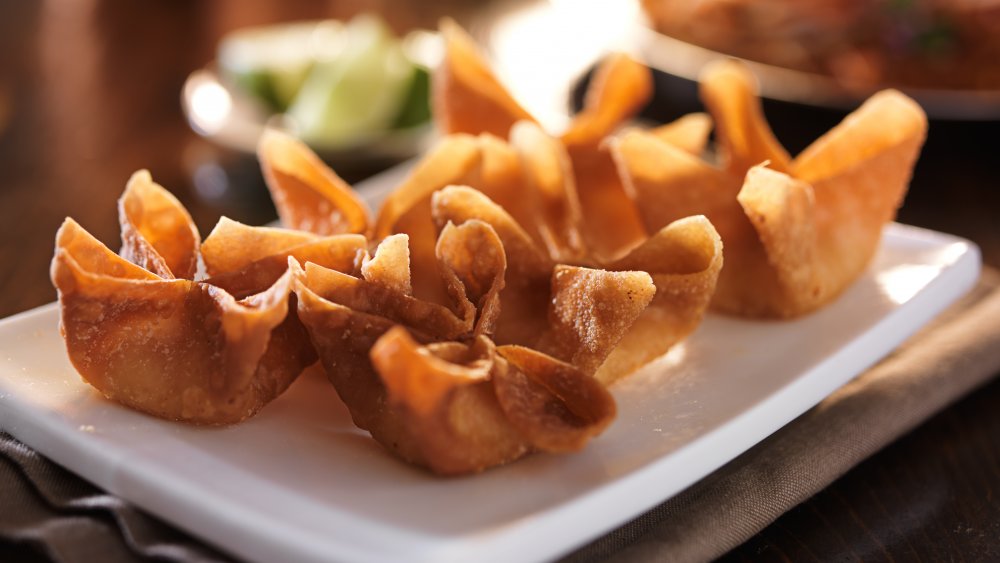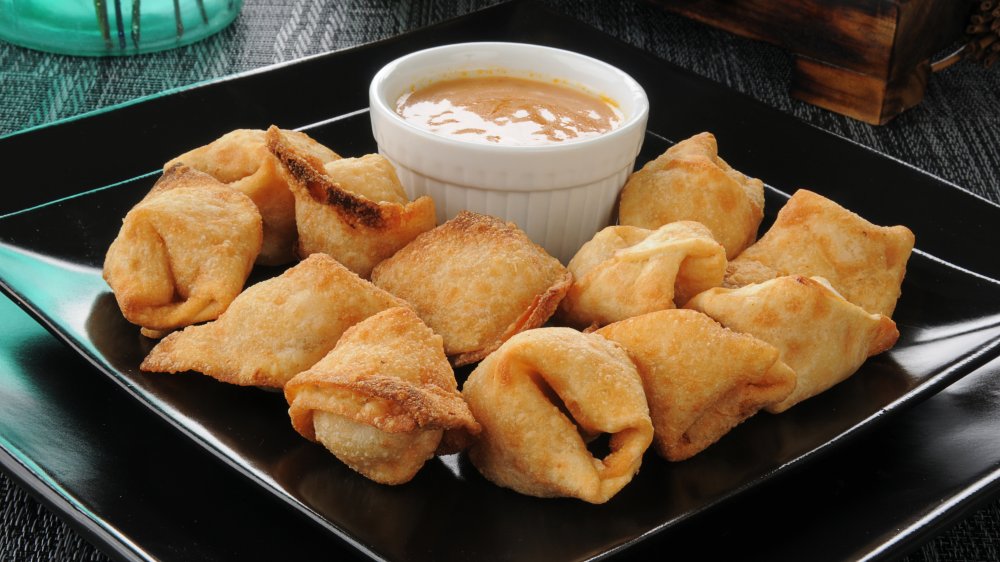You Should Think Twice About Ordering Crab Rangoon At A Chinese Restaurant. Here's Why
When presented with the various wonton-wrapped appetizers at a Chinese restaurant, the crab rangoon usually stands out among the pack. The main reason for this might be its novelty. Honestly, how often are you whipping together cream cheese and crab meat, artfully folding it into egg roll wrappers, and deep-frying it? We'll guess never. And we all like novelty; new things and experiences activate the "pleasure centers" of our brains (via Brain World).
If we're being honest, most of us also just like the thought of deep-fried cream cheese. But when you take a closer look at the nutritional value – or lack thereof – of crab rangoon and its authenticity, you may think twice about ordering it the next time you're at a Chinese restaurant. From fat, carbs, and cholesterol to imitation crab meat, the reasons to reconsider crab rangoon are many. Here's what you should know.
Crab rangoon is not very healthy and not very authentic
No one orders crab rangoon thinking they're doing something good for their body. But it might surprise you to know there are 12 grams of fat and 20 grams of carbohydrates in just three pieces (via Calorie King). There's also 35 milligrams of cholesterol – that's 12 percent of your daily intake, and you haven't even made it to the entree yet! If you're willing to overlook the not-so-healthy aspects of crab rangoon, at least consider the ingredients. You're probably not eating real crab at all.
According to Chowhound, crab rangoon usually isn't made with real crab meat. Imitation crab, a.k.a. surimi or "krab," is commonly the main ingredient. Fooducate describes surimi as a highly processed product composed of lean white fish pulverized into a thick paste. Chowhound says surimi actually functions better in the dish because the other flavors would overwhelm the light, subtle flavor of real crab meat. That seems like an error in recipe development to us, though. Why include an ingredient at all if you can't use the real version of it? Considering that crab rangoon does not come from China but was likely created by the 1950's Polynesian-themed chain restaurant, Trader Vic's (via Portable Press), we shouldn't expect too much in terms of authenticity. While turning down these oh-so-popular fish paste wontons is ultimately up to you, we think you should think twice about ordering crab rangoon the next time you're at a Chinese restaurant.

